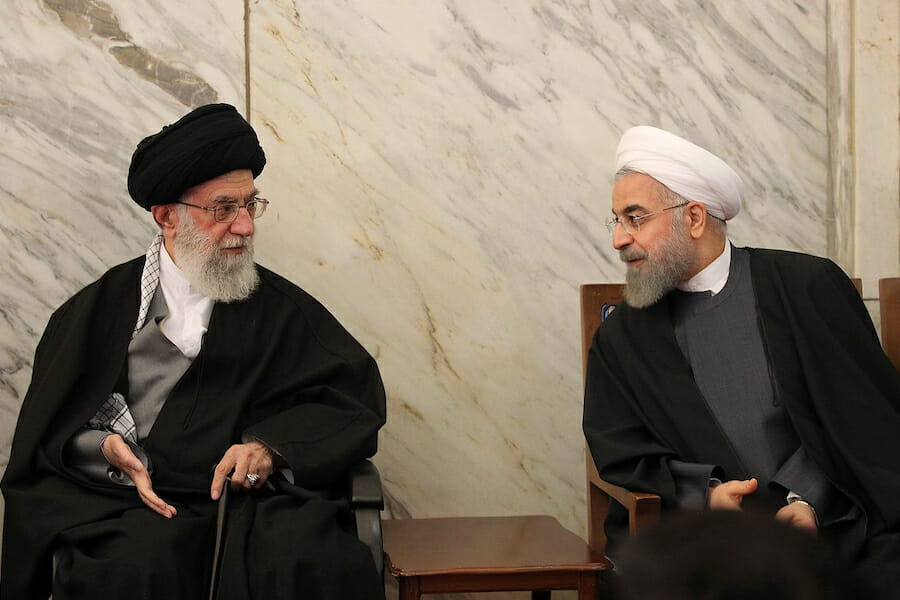
Grounds for Optimism as Justice and Accountability Take Priority in Dealing with Iran
As an Irish-Iranian, I am delighted to be entering 2021 with a renewed sense of hope regarding the future of European policy towards my homeland. For most of my life, I have watched with dismay as Western leaders have allowed the Iranian regime to get away with murder – sometimes literally. But now justice is coming to at least two agents of the Iranian regime, and this could very well set the stage for broader campaigns of accountability.
Longstanding trends towards conciliation were challenged by Washington with the advent of a “maximum pressure” strategy aimed at forcing broad changes from the Islamic Republic. But European governments pushed back with enough force to give the impression they were actually siding with an Iranian dictatorship to the detriment of the defining values of Western democracy.
It was disappointing, though not surprising, to find that the European Union and some of its members prioritized the 2015 Iran nuclear deal ahead of all other issues, especially after U.S. President Donald Trump’s withdrawal from the agreement in 2018. In subsequent discussions, Europeans avoided referencing terrorism and domestic human rights abuses even more so than during the original negotiations. Even when Iran had systematically violated every provision of the nuclear deal, the EU still declined to adopt a more assertive posture toward the Islamic Republic.
To a great extent, this fecklessness persists even today. It is not the EU’s political leadership that inspired my optimism going into 2021, but rather its judicial system. In late November, for the first time, an Iranian diplomat faced justice after being indicted on charges of terrorism. A court in Antwerp, Belgium is scheduled to deliver its verdict on January 22. The prosecution asked the court to impose the maximum sentence of 20 years imprisonment for Assadolah Assadi.
Prosecutors’ evidence demonstrates that Assadolah Assadi, the third counselor at the Iranian embassy in Vienna, commanded three operatives in 2018 as they attempted to bomb an annual gathering of Iranian expatriates in Paris.
Not only was the target venue located in the heart of Europe but was also attended by hundreds of political dignitaries from around the world, many of them lawmakers and high-profile foreign policy experts from Europe and North America. In all likelihood, some of them would have been killed if Assadi’s team had achieved their mission of detonating the bomb.
The trial has established that Assadi personally smuggled explosives from Iran, in his diplomatic bag while traveling on Austrian Airlines with a diplomatic passport; and that he had been acting on the explicit instructions of high-ranking officials within the Iranian regime. Prosecutors cited this as an instance of state terrorism against European targets, with potentially fatal consequences for Western personnel. This account of the plot surely helped to underscore the self-defeating nature of Western policies that ignore Tehran’s malign activities. By extension, the Assadi case has surely helped to push Western policymakers towards recognizing the potential cost of turning a blind eye to the regime’s malign activities.
That said, I am cautious in my optimism, as I am sure most of my fellow Iranians are. The Assadi case is a notable milestone, but it has yet to be backed up by formal policy changes that would support progress in the right direction.
The forthcoming Swedish court case against Hamid Noury, a former interrogator, is another cause for optimism. It is the first instance of an Iranian official being prosecuted – or facing any consequences whatsoever – for participating in the massacre of about 30,000 political prisoners in Iran in 1988.
Noury is accused of conducting torturous interrogations in Evin and Gohardasht prisons as part of the clerical regime’s bid to stamp out organized dissent, especially the People’s Mojahedin Organization of Iran (PMOI/MEK). Witness statements indicate that Noury not only collaborated with the “death commission” that was responsible for sending thousands of dissidents to the gallows, but that he personally carried out some of the executions.
The prosecutions of Noury and Assadi may be the first right step in making more concerted efforts to hold all other perpetrators accountable. To do so, European foreign policy must follow suit and work to redress the years of failed Iran policy.
While the significance of these prosecutions cannot be over-emphasized, we must not become complacent. We must continue to demand real policy change of European policymakers, but we can, at least for the moment, appreciate justice in action as a cause for optimism, at a time when Iranians – and the entire world – need it the most.

